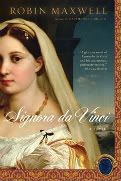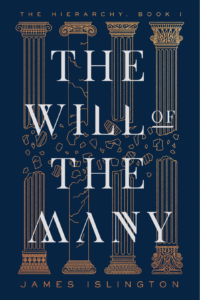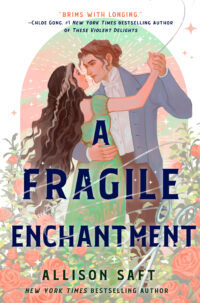Review : Signora Da Vinci
 Signora Da Vinci by Robin Maxwell
Signora Da Vinci by Robin Maxwell
Pages : 422
Genre : Historical Fiction
My Rating : ![]()
It was a genius idea Maxwell had when she chose to write about Da Vinci’s mother instead of writing about the artist himself. Caterina is strong female character, who uses her knowledge, her intuition and her wits to make her own way in a world that is leaded by men. At the same time, her position as a woman gives her a fresh look on things that she discovers with the reader, through vivid descriptions and numerous details.
Caterina was fifteen years old in 1452 when she bore an illegitimate child in the tiny village of Vinci. His name was Leonardo, and he was destined to change the world forever.
Caterina suffered much cruelty as an unmarried mother and had no recourse when her boy was taken away from her. But no one knew the secrets of her own childhood, nor could ever have imagined the dangerous and heretical scheme she would devise to protect and watch over her remarkable son. This is her story.
Very little is known about Leonardo Da Vinci’s real mother, and so the story presented by Maxwell is, mostly, a creation of her imagination. A good part of Caterina’s actions might seem unlikely to the logical reader, and this is where it is important to remember that it is, indeed, fiction. With this in mind, Caterina’s story becomes incredibly fascinating, almost magical, and the pages turn from the beginning to the end quickly.
As for the illustrious son, Leonardo, he isn’t that much present in the story. He is there for sure, but mostly we learn about the context in which he grew up and developped as an artist (and much more, obviously). The novel centers around Caterina and Leornardo’s relationship, but also around the politics and religion of Florence in the italian Renaissance. This being said, Caterina and her friend Lorenzo are all but christians, and while I am not religious myself, I thought they sometimes made too much of a point of not being christians. But I guess that in a way in makes sense, since they live in a world where the chuch has such a strong predominance.
What really made the story great, for me, were, as I said before, the “vivid descriptions and numerous details”. I could easily imagine the scenes described by Caterina, whether it was the fields where she picked her flowers, her father’s shop or Florence’s streets. The book created a colorful movie in my head, one that didn’t stop flowing even after I closed the book. And although I loved the story in itself, this single fact was enough for me to appreciate this novel!










I too found this book fascinating and vivid. I imagine that many brave women of that time took great risks as the character of Caterina did in Signora da Vinci. Especially from the standpoint of a mother, whose driving force in life is to be there for her son, there is often no other choice than to take great leaps of faith.
I loved the interaction between Lorenzo and Caterina.
This book had me feeling like I was an insider during DaVinci’s time.